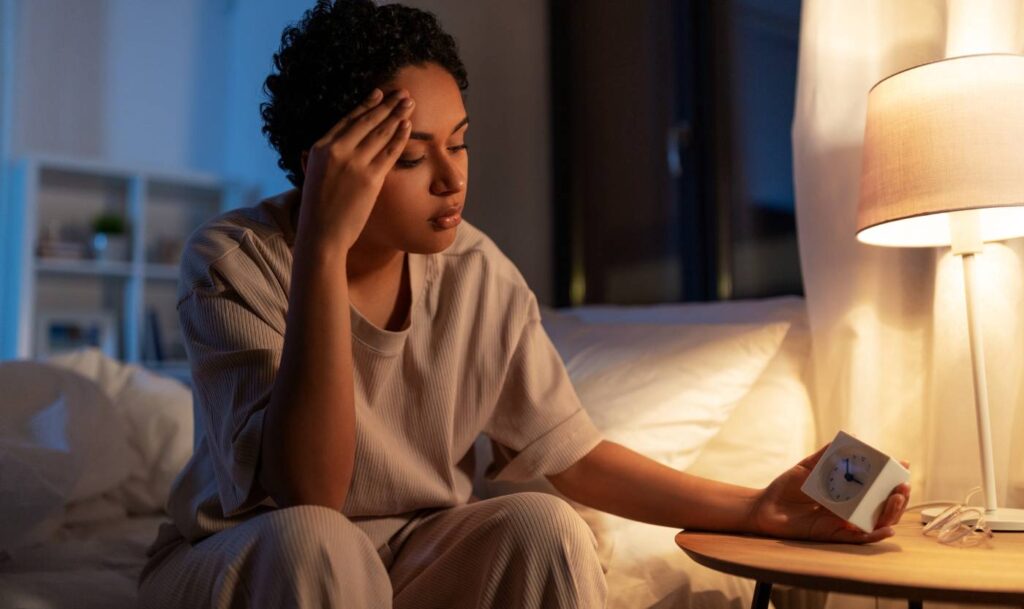Understanding Sleep Disorders
Sleep disorders affect millions of individuals worldwide, often leading to significant disruptions in daily life. These disorders can manifest in various forms, including insomnia, sleep apnoea, restless legs syndrome, and narcolepsy. Each condition presents unique challenges, and understanding them is the first step towards effective treatment.
Insomnia, characterised by difficulty falling or staying asleep, can result from stress, anxiety, or underlying medical conditions. Sleep apnoea, on the other hand, involves repeated interruptions in breathing during sleep, which can lead to severe health complications if left untreated. Recognising the symptoms and seeking professional help is crucial for anyone experiencing sleep disturbances.
Common Symptoms of Sleep Disorders
Identifying the symptoms of sleep disorders is essential for timely intervention. Common signs include excessive daytime sleepiness, difficulty concentrating, irritability, and mood swings. Individuals may also experience loud snoring, gasping for air during sleep, or an overwhelming urge to move their legs at night.
In Hobart, a wealth of resources is available to support those on their journey to better sleep. From sleep study Hobert to tailored treatment options, specialists are ready to assist individuals in overcoming their sleep challenges. With the right support and dedication, restful nights and rejuvenated days can become a reality once more.
It is important to note that these symptoms can vary from person to person. Therefore, maintaining a sleep diary that tracks sleep patterns, duration, and quality can be beneficial. This information can provide valuable insights during consultations with sleep specialists.

The Impact on Daily Life
The repercussions of untreated sleep disorders extend beyond mere fatigue. They can affect work performance, relationships, and overall quality of life. Chronic sleep deprivation has been linked to serious health issues, including obesity, diabetes, cardiovascular diseases, and weakened immune function.
Moreover, the psychological impact can be profound. Many individuals with sleep disorders experience heightened anxiety and depression, creating a vicious cycle that exacerbates their condition. Seeking help from specialists in Hobart can be a pivotal step towards reclaiming restful nights and improving overall well-being.
The Role of Sleep Studies
Sleep studies, or polysomnography, are essential diagnostic tools used by sleep specialists to assess sleep patterns and identify disorders. These studies are typically conducted in a sleep laboratory, where patients are monitored overnight. Advanced technology records brain waves, oxygen levels, heart rate, and breathing patterns to provide a comprehensive overview of the patient’s sleep.
For those in Hobart, sleep studies offer a thorough evaluation that can lead to accurate diagnoses and tailored treatment plans. Understanding the process can help alleviate any apprehensions about undergoing a sleep study.
What to Expect During a Sleep Study
Patients undergoing a sleep study will typically spend the night in a comfortable, private room equipped with monitoring devices. Before the study begins, a technician will attach sensors to the scalp, face, chest, and legs to collect data. While the idea of sleeping in a clinical setting may seem daunting, the environment is designed to be as relaxing as possible. Find more about environment at https://hsa.edu.pk/environmental-health-sciences-and-managment/
Patients are encouraged to maintain their usual bedtime routines, which can help to ensure that the study accurately reflects their typical sleep patterns. The data collected during the night will then be analysed by sleep specialists, who will interpret the results and recommend appropriate treatment options.
Types of Sleep Studies
There are several types of sleep studies, each tailored to specific symptoms and concerns. The most common type is the overnight polysomnography, which provides a comprehensive overview of sleep stages and disturbances. However, there are also home sleep studies available for individuals suspected of having obstructive sleep apnoea.
Home sleep studies are less invasive and can be conducted in the comfort of one’s own home. They typically involve wearing a portable monitoring device that tracks breathing patterns and oxygen levels. While these studies may not provide as detailed information as an overnight polysomnography, they can still be effective for diagnosing certain sleep disorders.
Benefits of Seeking Professional Help
Consulting with sleep specialists in Hobart can lead to numerous benefits for individuals struggling with sleep disorders. Early diagnosis and intervention can significantly improve sleep quality and overall health. Specialists can offer personalised treatment plans that may include lifestyle changes, cognitive behavioural therapy, or medical interventions.
Furthermore, addressing sleep issues can have a profound impact on mental health. Improved sleep quality often leads to better mood regulation, enhanced cognitive function, and increased energy levels. This holistic approach to treatment can help individuals regain control over their lives.

Personalised Treatment Plans
After a thorough evaluation, sleep specialists will work with patients to develop personalised treatment plans tailored to their specific needs. These plans may include recommendations for behavioural changes, such as establishing a consistent sleep schedule, creating a relaxing bedtime routine, and minimising caffeine and alcohol consumption. To know more about caffeine click here.
In some cases, medical treatments may be necessary. For example, continuous positive airway pressure (CPAP) therapy is commonly prescribed for individuals diagnosed with obstructive sleep apnoea. This non-invasive treatment involves wearing a mask connected to a machine that delivers a continuous flow of air, helping to keep the airways open during sleep.
Long-Term Health Benefits
Investing in sleep health can yield significant long-term benefits. Studies have shown that individuals who prioritise sleep experience lower rates of chronic illnesses, improved mental health, and enhanced cognitive performance. By addressing sleep disorders, individuals can reduce their risk of developing conditions such as hypertension, diabetes, and heart disease.
Moreover, the positive effects of quality sleep extend beyond physical health. Improved sleep can lead to better emotional stability, increased productivity, and stronger interpersonal relationships. Ultimately, reclaiming peaceful nights can transform not only individual lives but also the lives of those around them.
Finding Sleep Specialists in Hobart
For those seeking help with sleep disorders, Hobart offers a range of qualified sleep specialists. These professionals are equipped with the knowledge and tools necessary to diagnose and treat various sleep-related issues. When searching for a sleep specialist, it is essential to consider their qualifications, experience, and patient reviews.
Many specialists in Hobart are affiliated with reputable medical institutions and offer comprehensive services, including consultations, sleep studies, and ongoing support. It is advisable to schedule an initial consultation to discuss symptoms and explore potential treatment options.
Questions to Ask Your Sleep Specialist
Patients may also want to ask about lifestyle changes that could improve sleep quality and any potential side effects of recommended treatments. Open communication is key to establishing a trusting relationship with the sleep specialist, which can enhance the overall treatment experience.
Building a Support Network
In addition to professional support, building a personal support network can be beneficial for those dealing with sleep disorders. Friends and family can play a crucial role in encouraging healthy sleep habits and providing emotional support throughout the treatment process.
Joining support groups or online forums can also offer a sense of community and shared experience. Connecting with others who face similar challenges can provide valuable insights and encouragement, making the journey towards better sleep feel less isolating.
Conclusion
Reclaiming peaceful nights is an achievable goal for anyone struggling with sleep disorders. By understanding the nature of these conditions, seeking professional help, and committing to personalised treatment plans, individuals can significantly improve their sleep quality and overall well-being.
Learn more on: Spot the Red Flags Early with a Sleep Study Phillip Residents Recommend

